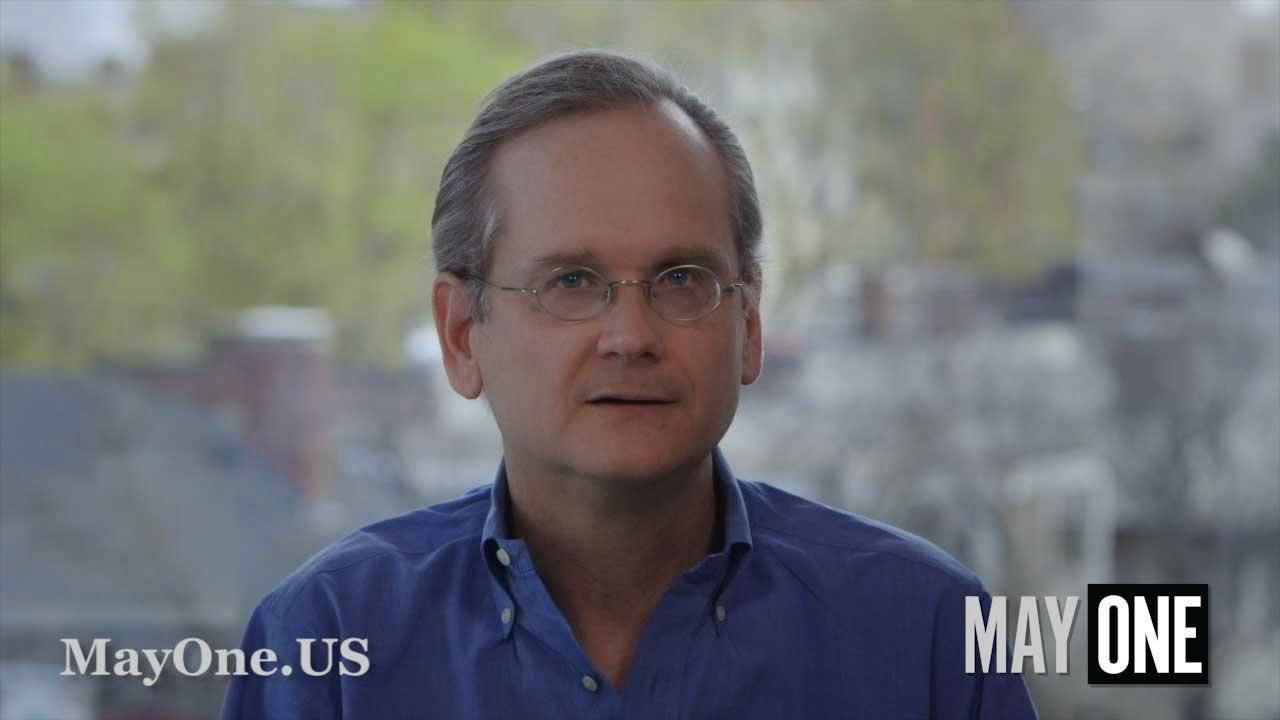
The reach and aggregation power of the Internet might enable the American public en masse to accomplish what many U.S. politicians have struggled to do for decades -- go toe-to-toe with powerful lobbies and inspire campaign finance reform.
At least so believes famed political activist and Harvard ethics and law professor Lawrence Lessig and other co-founders of MayOne.US. The KickStarter fundraising campaign aims to ignite fundamental U.S. campaign finance reform by crowdfunding an initial $1 million to create a super PAC (short for political action committee) to rival those created by public figures, big corporate donors, powerful lobbyist and special interest groups.
Though taking the same legal organizational form, the MayDay Citizens' Super PAC could be seen as the antipode of most of the super PACs we now know. While the latter aim to rake in large donations from large corporations and the wealthiest Americans supportive of their political agenda, the MayDay Citizens' super PAC aims to raise a critical mass of money in small increments from Americans who see U.S. democracy and capitalism being undermined by the ongoing accumulation of wealth, political influence and power in the hands of a super-rich elite.
Countering the concentration of political power
It's been true throughout world history that large concentrations of wealth have led to large concentrations of political influence and power, which brings to mind that twisted, though oh-so-valid variant of The Golden Rule. It goes something like: "Them that gots the gold, makes the rules.”
The mix of economic, tax and regulatory policies of the past three decades – along with the very same sorts of digital information technology Lessig and MayOne.US are bringing to bear – have led to concentrations of wealth and political power in the U.S. that haven't been seen since the late 19th and early 20th centuries; the days when the great “Robber Barons” and industrialists, such as Andrew Carnegie, J.P. Morgan and John D. Rockefeller, used almost any means imaginable to bring "order from chaos," and in the process accumulate unheard of amounts of wealth and political power.
Super PACs are the latest weapons in the escalating arms race that is U.S. campaign finance. A type of independent PAC, super PACs enable contributors – including corporations, unions and individuals – to donate unlimited amounts of money to these political fundraising organizations without full public disclosure.
Designed to circumvent limits on campaign contributions by corporations, other large organizations and individuals to PACs, super PACs came into existence following two 2010 Supreme Court rulings -- the now notorious “Citizens United” and Speechnow.org v. FEC (Federal Election Commission). Though super PACs are not permitted to contribute to or coordinate directly with political parties or candidates, they have and are being used to fund the political campaigns of candidates in local, state and national elections across the nation.
Crowdfunding U.S. campaign finance reform
The U.S. Founding Fathers, including George Washington and John Adams, and presidents, such as Abraham Lincoln, Theodore and Franklin D. Roosevelt, were keenly aware and keen to prevent such inequities -- which they believed would undermine the foundations of American democracy and capitalism. Lessig and MayOne.US co-founders and supporters apparently see that happening today. They're not alone.
https://www.youtube.com/watch?v=qCcqkyRJl7M
Since its launch on May 1, MayOne.US is more than halfway toward reaching its goal of raising $1 million and forming the MayDay Citizens' super PAC. On the May 1 launch of the MayOne.US Kickstarter campaign, Lessig wrote on his blog:
“There are a couple times in my life when I have felt like I’ve just leapt off a tall building. On the whole, I’ve decided, I’ve not had this feeling often enough. So today, I leap again — with certainly the biggest chance to fail of anything I’ve ever done.“Today we launch the MayDay Citizens’ SuperPAC — the 'moneybomb' Matt Miller wrote that we were working on about a year ago, and the 'moonshot' BillMoyers.com wrote about last month. Think of it as a 'SuperPAC to end all SuperPACs,' built first from small-dollar contributions, which, if we’re successful, will be matched by larger contributions."
Lessig is no stranger to direct action and blowing open the doors of government, particularly when it comes to open disclosure and public access to knowledge and information.
The co-creator of the Creative Commons (CC) license and the nonprofit organization of the same name, Lessig, James Boyle and Hal Ableson in 2002 adapted and applied the same basic principles underlying open-source software development's GNU GPL (General Public License) to effectively rewrite the rules of U.S. copyright law. The initiation of the license enabled floods of information, as well as music, video and other creative works, to flow freely over the Internet and across the world. With a bit of good luck and the support of American citizens, he may do the same for U.S. campaign finance.
*Image credit: MayDayOne.US

An experienced, independent journalist, editor and researcher, Andrew has crisscrossed the globe while reporting on sustainability, corporate social responsibility, social and environmental entrepreneurship, renewable energy, energy efficiency and clean technology. He studied geology at CU, Boulder, has an MBA in finance from Pace University, and completed a certificate program in international governance for biodiversity at UN University in Japan.














